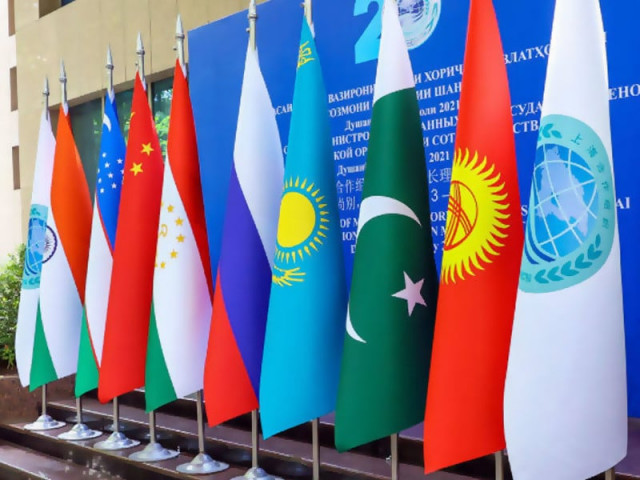Benefitting through SCO and BRICS
To achieve economic gains, Pakistan must shed obstructionist policies

Following the recent successful hosting of the Shanghai Cooperation Organisation (SCO) summit, Pakistan is now keenly lobbying for inclusion in BRICS, the prominent bloc of emerging economies.
Originally comprising Brazil, Russia, India, China, and South Africa, BRICS recently expanded its membership to include influential Middle Eastern nations such as Egypt, Ethiopia, Iran, Saudi Arabia, and the UAE.
While the SCO and BRICS share some similarities – most notably the dominant roles of China, Russia, and India – there are important distinctions.
The SCO, primarily a Eurasian organisation, was initially founded with a security focus but is gradually broadening its agenda to encompass economic cooperation. On the other hand, BRICS initially formed as a loose economic alliance to counterbalance Western influence in global organisations, is now positioning itself to play a more prominent political role in the evolving world order.
Pakistan's decision to join the SCO was a strategic move, and its potential bid for BRICS membership reflects an attempt to assert its independence on the global stage. However, the critical question remains: can Pakistan derive tangible economic benefits from joining these influential blocs?
Historically, Pakistan has not benefited much economically from its participation in multilateral organisations.
For example, it was one of the founding members of the General Agreement on Tariffs and Trade (GATT) in 1948, an agreement widely regarded as one of the most successful in reducing trade barriers and increasing global integration. However, Pakistan hardly gained from its membership of that organisation due to its lack of engagement.
Later, when GATT was subsumed into the World Trade Organisation (WTO) in 1995, Pakistan again became a founding member. Yet, the country showed minimal commitment to reforming its trade policies to fulfil its international commitments.
On the other hand, many developing countries, notably China and Vietnam, significantly boosted their international trade and global integration after joining that organisation and by aligning their domestic policies with international commitments.
Regionally, Pakistan has adopted a similarly restrained approach. When the South Asian Free Trade Area (Safta) was established after the 12th Saarc Summit in Islamabad in 2004, there were a lot of expectations that this would help Pakistan in promoting regional trade.
While other major Safta members such as India and Bangladesh were able to achieve over 600% jump in bilateral trade from $2.5 billion in 2005 to $16 billion in 2023, Pakistan's bilateral trade volume of about $3 billion with India shrank by two-thirds.
If Pakistan is seeking economic gains, it needs to seriously examine its inward-looking approach.
The recent SCO declaration, adopted in Islamabad, acknowledged the "tectonic shifts" in the global economy, particularly in information technology, digitalisation, artificial intelligence, and e-commerce. Member states resolved to deepen cooperation in these areas, including countering protectionist trade measures. However, Pakistan may face challenges in this regard.
One reason is that while most SCO members are actively involved in ongoing WTO negotiations on new agreements related to the areas noted in the declaration such as digital trade and e-commerce, Pakistan remains a bystander.
In fact, it has yet to become a signatory to the WTO's Information Technology Agreement, the first such agreement concluded in 1997, which has since become one of the organisation's most successful plurilateral agreements. All SCO members within the WTO are already part of this agreement, positioning them to build on it more effectively.
Speculation that member countries of these organisations might switch from trading in US dollars to regional currencies, thereby helping Pakistan overcome its shortage of US dollars, seems far-fetched. As things currently stand, the likelihood of transitioning to regional currencies appears slim.
If Pakistan aims to enhance its economic well-being, it should prioritise joining organisations that emphasise geoeconomics over geopolitics. Therefore, it would be wise to pursue membership of the Regional Comprehensive Economic Partnership (RCEP), which serves as a hub for international trade and growing prosperity.
This focus explains why an overwhelming majority of Asia-Pacific countries has chosen to be part of this trade bloc, which is also led by China.
The key takeaway from these examples is that merely joining regional or multilateral blocs does not automatically guarantee economic benefits. If Pakistan genuinely seeks to achieve economic gains, it must move away from its current obstructionist policies.
The country should leverage its strategic geographical location to facilitate the flow of transit trade among SCO members. Likewise, it needs to shed its dubious reputation as one of the world's most protectionist countries and transition into a forward-looking, globally integrated economy.
Furthermore, to benefit from modern technologies, Pakistan should actively engage in international agreements related to information technology, digital trade, and e-commerce. Without these proactive steps, joining new blocs may result in minimal real outcomes rather than tangible economic benefits.
The writer is a Senior Fellow at PIDE. Previously, he has served as Pakistan's ambassador to the WTO and FAO's representative to the United Nations at Geneva


















COMMENTS
Comments are moderated and generally will be posted if they are on-topic and not abusive.
For more information, please see our Comments FAQ